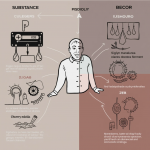
How to Increase Insurance Agent Productivity: Proven Strategies for Success
In the fast-paced world of insurance, staying ahead of the competition while managing time and resources effectively is critical. For insurance agents, the ability to maximize productivity is directly linked to higher profits, better client relationships, and professional growth. Increasing productivity, however, requires more than just working harder—it’s about working smarter. In this article, we’ll explore how to increase insurance agent productivity through proven strategies, tools, and mindset shifts that can transform how agents approach their daily tasks.
1. Leverage Technology to Automate Routine Tasks
One of the easiest ways to boost productivity is by leveraging technology. Insurance agents often spend hours handling repetitive administrative tasks that could easily be automated with the right tools. Customer Relationship Management (CRM) systems, automated email marketing platforms, and scheduling software can streamline workflows, freeing up more time for client-facing activities.
For instance, using a CRM allows agents to keep all client data in one place, track communication, and set reminders for follow-ups. Email automation can help agents stay in touch with clients without the constant need to write individual emails. This not only saves time but ensures consistent communication. Tools like scheduling software also allow clients to book meetings at their convenience, cutting down on the back-and-forth often involved in setting appointments.
2. Set Clear Goals and Prioritize Tasks
Productivity is often hindered by a lack of focus and clear direction. Insurance agents who set specific, measurable, achievable, relevant, and time-bound (SMART) goals are far more likely to stay on track and accomplish more. When these goals are aligned with a well-prioritized task list, it becomes easier to focus on high-impact activities instead of getting bogged down in less important tasks.
Agents can break down their daily, weekly, and monthly goals into manageable tasks. For example, instead of simply having a goal to “increase sales,” break it down into smaller steps like “schedule five prospect meetings this week” or “follow up with three leads each day.” By taking time at the beginning of each day or week to prioritize tasks based on urgency and importance, insurance agents can maximize their efficiency.
3. Master Time Management Techniques
Time management is a crucial skill for insurance agents, who often juggle multiple tasks throughout the day. Without proper time management, it’s easy to fall into a cycle of working reactively, responding to emails or calls as they come in, rather than proactively planning the day.
There are several proven time management techniques that agents can adopt:
- The Pomodoro Technique: This method involves working in focused intervals of 25 minutes followed by a five-minute break. After four intervals, take a longer break. This helps prevent burnout and keeps productivity high.
- Time Blocking: Time blocking involves dedicating specific blocks of time to certain tasks. For example, block out 9 AM to 11 AM for client calls and 1 PM to 3 PM for administrative work.
- The Eisenhower Matrix: This strategy helps agents prioritize tasks by categorizing them into four quadrants based on urgency and importance. Urgent and important tasks should be done first, while tasks that are neither urgent nor important can be delegated or postponed.
4. Focus on Client Retention as Much as Acquisition
Insurance agents are often focused on acquiring new clients, but retaining existing ones is equally important and can be more efficient. Building strong relationships with current clients ensures long-term business, referrals, and a more predictable income stream. Developing client retention strategies—such as regular check-ins, personalized service, and offering relevant products—can help agents spend less time chasing new leads and more time strengthening existing relationships.
For instance, a simple birthday greeting or periodic policy reviews can go a long way in maintaining a personal connection. Retention strategies are less time-consuming than constantly prospecting for new clients, which leads to greater productivity in the long run.
5. Invest in Professional Development
Continuing education and professional development are vital for insurance agents who want to stay competitive and efficient. By staying updated on the latest industry trends, products, and regulations, agents can provide better advice to clients and close deals faster. This, in turn, leads to increased productivity.
Agents can attend webinars, industry conferences, and certification courses to sharpen their skills. In addition to formal education, agents can also improve soft skills such as communication, negotiation, and time management. Being well-versed in a broad range of topics makes agents more adaptable and quicker in providing solutions to clients.
6. Outsource Non-Essential Tasks
Insurance agents can sometimes find themselves bogged down by tasks that do not directly contribute to their productivity or income. Outsourcing non-essential tasks like bookkeeping, data entry, or marketing can free up valuable time that can be better spent on client interactions and sales activities.
Hiring a virtual assistant or outsourcing to specialized agencies can help ensure that the behind-the-scenes work is handled efficiently, while the agent focuses on growing the business.
7. Maintain Work-Life Balance
It might seem counterintuitive, but maintaining a good work-life balance is essential for productivity. Overworking can lead to burnout, which ultimately reduces efficiency. Insurance agents who take time to rest, exercise, and spend time with loved ones are often more focused and energized when they return to work.
Setting clear boundaries between work and personal time, taking regular breaks, and ensuring proper rest can lead to higher energy levels and more sustainable productivity over the long term.
8. Monitor and Measure Progress
Finally, productivity improvements are only meaningful if they are tracked. Insurance agents should regularly review their progress toward goals and evaluate whether their current strategies are working. This could include tracking metrics like the number of new policies sold, client retention rates, and overall revenue growth.
Agents can use tools like productivity apps, calendars, or even simple spreadsheets to monitor their performance. By consistently measuring progress, agents can identify areas for improvement and adjust their strategies to ensure continued growth.
Conclusion
Increasing productivity as an insurance agent is not just about working harder—it’s about working smarter. By leveraging technology, setting clear goals, improving time management, focusing on client retention, and investing in professional development, agents can significantly enhance their efficiency. Monitoring progress and continuously refining strategies will ensure long-term success in an ever-evolving industry. By following these strategies, insurance agents can not only increase their productivity but also provide better service to their clients and ultimately grow their businesses.
FAQs
1. What are the best tools for increasing insurance agent productivity?
Some of the best tools include CRM systems like Salesforce or HubSpot, email automation platforms such as MailChimp or ActiveCampaign, and scheduling software like Calendly or Google Calendar. These tools help automate routine tasks, manage client relationships, and optimize time management.
2. How can insurance agents manage their time better?
Time management techniques like the Pomodoro Technique, time blocking, and the Eisenhower Matrix can significantly improve productivity. These methods help agents stay focused, prioritize tasks, and avoid wasting time on less important activities.
3. Why is client retention important for productivity?
Client retention is essential because it requires less time and effort than acquiring new clients. Retaining clients leads to a steady income stream, potential referrals, and stronger relationships, which ultimately saves time and boosts productivity.
4. How can professional development improve productivity? Investing in professional development helps insurance agents stay up-to-date with industry trends and regulations, allowing them to provide better advice to clients. This knowledge enables agents to close deals faster and more efficiently, leading to increased productivity.
5. What are some common distractions for insurance agents, and how can they be minimized?
Common distractions include email notifications, social media, and unscheduled phone calls. To minimize distractions, agents can schedule specific times to check emails and return calls, use productivity apps to block social media during work hours, and set boundaries for uninterrupted focus time.
6. Is outsourcing a good option for insurance agents looking to increase productivity?
Yes, outsourcing non-essential tasks like marketing, data entry, or bookkeeping can free up time for insurance agents to focus on client relationships and sales. This can lead to greater efficiency and productivity.











